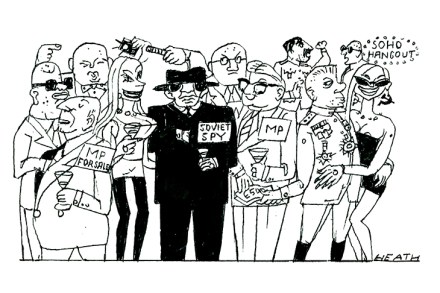A very social spy
I first met Sergey Nalobin in 2012 at Soho House. He introduced himself, in accented English, as from the Russian embassy. ‘On the Ministry of Foreign Affairs orientation course before coming to London, I was told to read Guido Fawkes blog and Private Eye. I enjoy yours more,’ he said flatteringly (I publish Guido Fawkes).




















